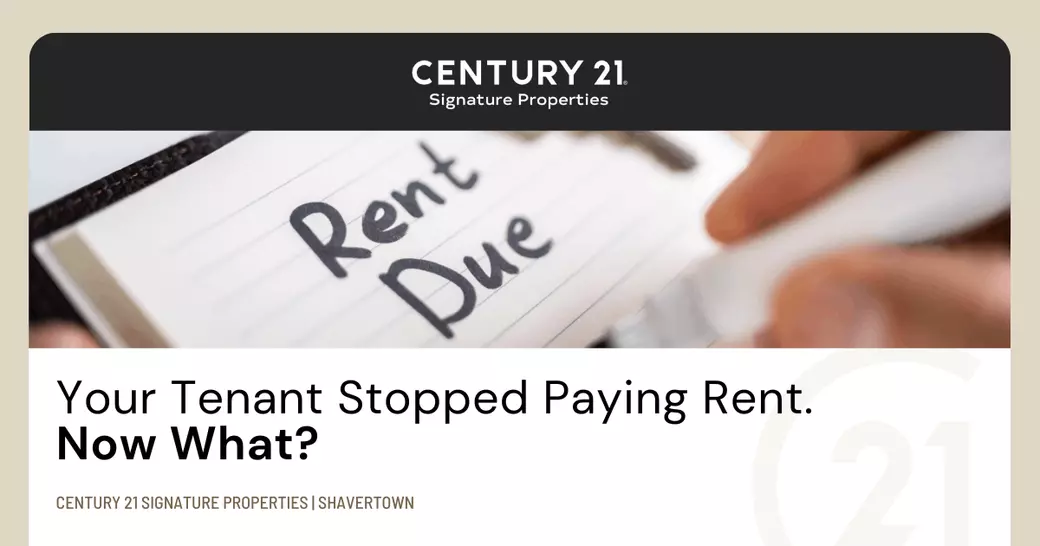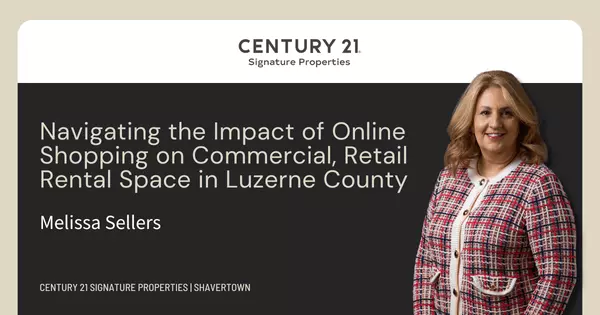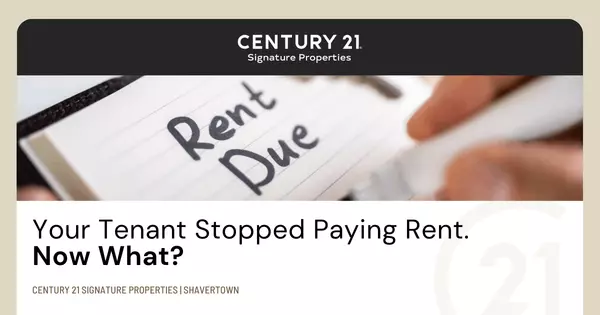Your Tenant Stopped Paying Rent. Now What?

Being a landlord or real estate investor comes with its share of challenges, one of the most common being tenants who stop paying rent. When faced with this situation in Luzerne County, Pennsylvania, it's crucial for landlords to know their options, understand state and local regulations, and consider proactive steps to avoid such costly and time-consuming scenarios.
Additionally, partnering Century 21 Signature Properties can offer valuable expertise and support in managing rental properties effectively.
In Luzerne County, landlords have legal options available to address tenants who have stopped paying rent. The first step is to review the lease agreement signed with the tenant, as it typically outlines the terms and conditions regarding rent payment, late fees, and procedures for handling non-payment.
If rent remains unpaid after the due date, landlords can issue a formal notice to the tenant, usually referred to as a "pay or quit" notice, which gives the tenant a set period to either pay the overdue rent or vacate the property.
Under Pennsylvania state law, landlords must follow the proper legal procedures when dealing with non-paying tenants, including adhering to specific timelines and notices outlined in the Landlord and Tenant Act. It's essential for landlords to familiarize themselves with these regulations to ensure compliance and protect their rights as property owners.
Moreover, Luzerne County may have additional local ordinances or regulations that landlords need to be aware of when managing rental properties. This could include requirements related to eviction procedures, security deposits, or property maintenance standards. Staying informed about these regulations can help landlords navigate challenging situations with tenants effectively and minimize legal risks.
To help you better manage this issue, here are 5 actionable steps a landlord should take immediately when a tenant stops paying rent –
Review the Lease Agreement: The first step is to carefully review the lease agreement to understand the rights and options available to you as a landlord in case of rent non-payment.
Send a Notice: Issue a formal written notice to the tenant specifying the amount of rent owed and the deadline for payment. This notice should comply with the legal requirements in your jurisdiction.
Talk to the Tenant: Reach out to the tenant to discuss the situation and try to understand the reason behind the non-payment. Sometimes, tenants face financial difficulties that can be resolved through negotiation and communication.
Consider Legal Action: If the tenant fails to respond to the notice or is unable to pay the rent owed, consult with a legal professional to understand the eviction process in your area. Taking legal action may include filing for eviction in court.
Document Everything: Keep detailed records of all communication, notices, and actions taken regarding the rent non-payment. This documentation will be crucial if legal action becomes necessary.
By following these steps promptly and in accordance with the law, landlords can protect their rights and take appropriate action when a tenant stops paying rent.
To proactively avoid tenant non-payment issues, consider working with me at Century 21 Signature Properties. I have the expertise to handle tenant screening, lease agreements, rent collection, and property maintenance, which can help prevent rent collection problems before they arise.
If you’re a new or seasoned investor interested in purchasing properties in Luzerne County or a current property owner interested in learning about how my property management services are creating efficiencies and increasing revenue for my clients, I’d love to hear from you at 570-762-3670 or via email at melissa874638@gmail.com.
Categories
Recent Posts











Making real estate fast, fun, and stress-free!
